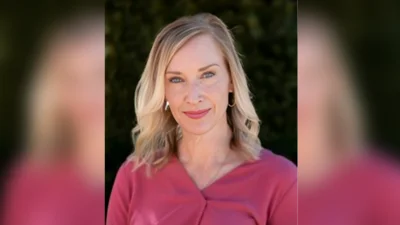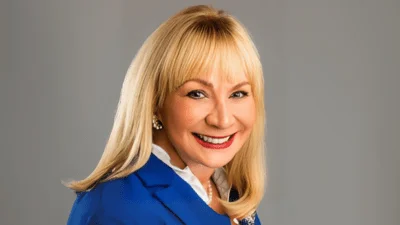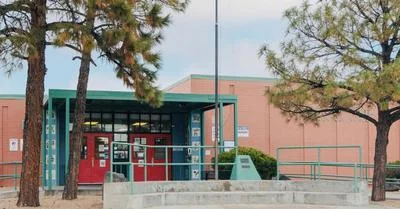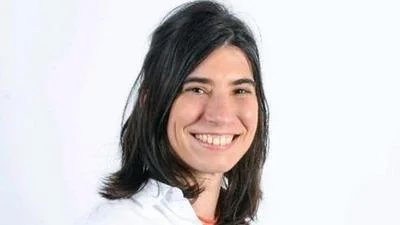Brother Ralph knows the rough road to addiction as well as the path to a better life. He’s been down both.
Ralph DiPalma, a volunteer minister with Last Chance Ministries, has been working with the homeless for more 50 years. Last Chance Ministries is a street ministry that works with volunteers from other organizations and ministries, and DiPalma does much of his work at night, talking to street people, urging them to kick drugs and alcohol, get a home and a job and move forward in life.
DiPalma, 73, was born and raised in New Jersey, and was involved with alcohol and drugs as a young man. His addiction grew after he joined the Marine Corps and served two tours of duty in Vietnam in the late 1960s, firing a 50-caliber machine gun from a helicopter and carrying an M16 and a Ka-Bar knife, with a grenade launcher at his feet.
DiPalma said the stress and uncertainty fueled his addictions, and also led him into drug dealing and criminal activity. It cost him his self-respect, his mental clarity and his military stripes, as he was demoted from sergeant because of his behavior.
“I was receiving combat pay. I flew as a window gunner with the First Marine air wing,” DiPalma recalled in an interview with the New Mexico Sun.
In the war, he built bunkers during the day and in the evening he was on medevac missions to take the dead to a morgue and the wounded to a hospital in Danang.
“They targeted our base with rockets and mortars during the whole time," he said. "During that time we were just building bunkers and we had to run into the bunkers during the night. It sounded like freight trains. And during that time I asked the Lord to save my life. And He did. And I promised the Lord I would stop all of the drug trafficking, drug use, alcoholism and all the other things that go along with that. And so from that time, I made a heartfelt commitment to Him.”
After he left the military, DiPalma decided to head to California, driving west on the fabled Route 66. DiPalma stopped in Albuquerque in late 1970 or early 1971 to see two old friends who were mired in substance abuse, but he couldn’t locate them.
He did, however, find his life’s calling.
“Both of those young men were heroin addicts, longtime heroin addicts," DiPalma said. "I consented to spend some time in Albuquerque to look for them, to tell them what happened to me, how God had, through prayer and thanksgiving, given me the strength to say no for the first time to the temptations and really mean it for the first time.
"I wanted to share, because they knew my past as an alcoholic teenager and a drug addict, and I wanted to find them and tell them what happened to me, but I couldn’t find them," he added. “But in the meantime, I joined a Christian mission that took in the homeless people. I began working with them and I haven’t stopped since then.”
DiPalma freely shares his story with people ensnared by addiction.
“I told them that of joy of the Lord is my strength, very grateful for what has happened to me,” he said. “I receive strength every day through thanksgiving. I receive strength every day to say no in the morning, no in the afternoon, no in the middle of the night, no throughout the night.”
DiPalma said for the first 10-15 years after he became sober, the temptation to again use opium was strong. But he never gave in, and the desire stopped gnawing at him.
“Oh, no, no, no,” DiPalma said. “It’s the farthest thing from my mind.”
About those old New Jersey buddies he tried to save? DiPalma spoke to one of his old friends this summer and he is “doing really good,” he said.
DiPalma has no idea if the other man is alive or dead.
DiPalma said he has a variety of papers and certificates from different organizations, but he considers himself an independent preacher and social worker. He has no official title, no paycheck, no regular form of income.
“I have received no salary,” he said. “I have never received any salary in 53 years.”
For more than two decades, he lived in shelters and churches, but now he has his own apartment and has some money, thanks to support from people who admire what he does.
Last Chance Ministries is an informal organization made up of volunteers from more than 50 churches. It has no headquarters, holding gatherings in city parks, and paying for that by cleaning the parks afterward.
“I think the best way to explain it is we're just a group of Christians who know each other over the years,” DiPalma said. “We don’t have to pay rent and we don’t have to pay mortgage. We don’t have to pay gas and electric and we don’t have to pay salaries. Everyone is a volunteer, so it works good that way.
“We work by phone and we pick up donations from stores that cannot sell their food because it’s damaged,” he said. “And they call and tell us and they say, ‘Can you come and pick it up?’ So we say, ‘Sure, we’ll be right there.’ We make do. There’s plenty of ways to make do.”
After 52 years people know DiPalma and his work, and they make sure it continues.
“Some of our volunteers have connections with Costco, with Albertsons, with Sam’s Club, and so on and so forth,” he said.
Homeless people are fed, given water, provided clothes and shoes, and, before Albuquerque provided free bus services, offered bus passes. Up to 700 people are fed by volunteers every week, he said.
But more than meeting their material needs, the goal was to help people get off the streets, DiPalma said. That means going to where the homeless gather, including the area in southeast Albuquerque known as the “War Zone,” and seeking them out under freeways, bringing food, water and a message via a loudspeaker.
DiPalma was attacked by a homeless man in summer 2021 and was hospitalized. It wasn’t the first time he was injured by someone he tried to help, but he accepts it as part of his job. He was a Marine who once went into battle fully armed, but now he never carries any weapons.
DiPalma is taking a break and is headed to Italy for five weeks. But it’s not a vacation.
“I have some relatives who are getting old," he said. "They got me a ticket and I’ve gotta go and help them for about five weeks.”
But he will return in time for the holiday season, sharing his story and trying to help people get on the road to recovery. It’s hard, dangerous work, and DiPalma has no intentions of stopping soon.
How much longer will he prowl the streets at night, talking with troubled souls and trying to guide them to a better life?
“Until I can’t go anymore,” DiPalma said.





